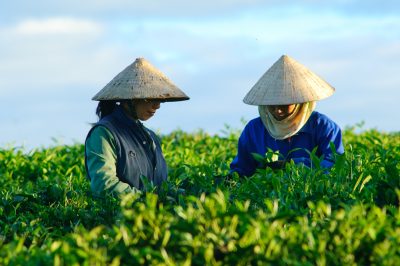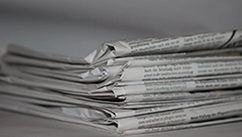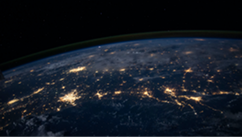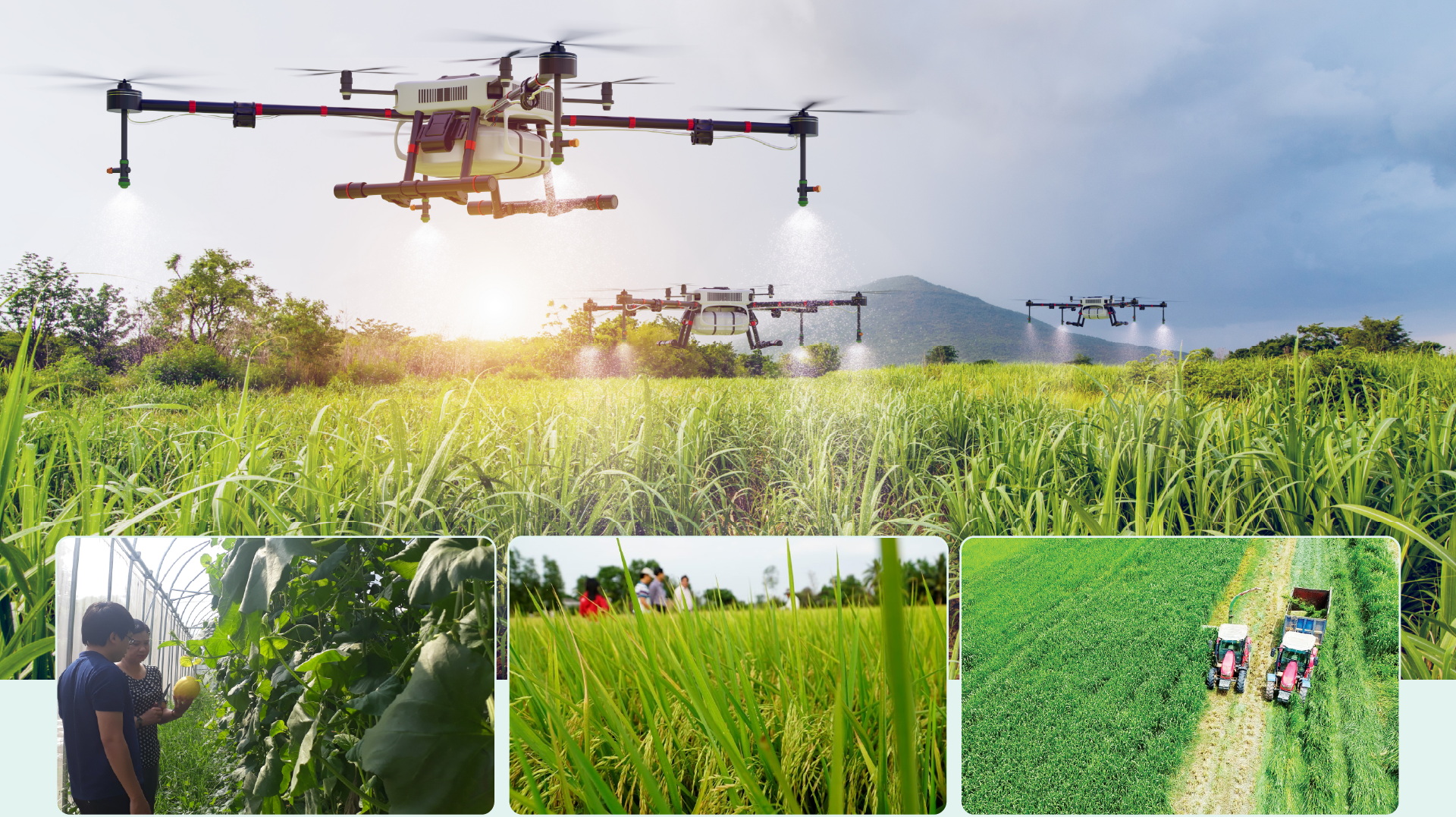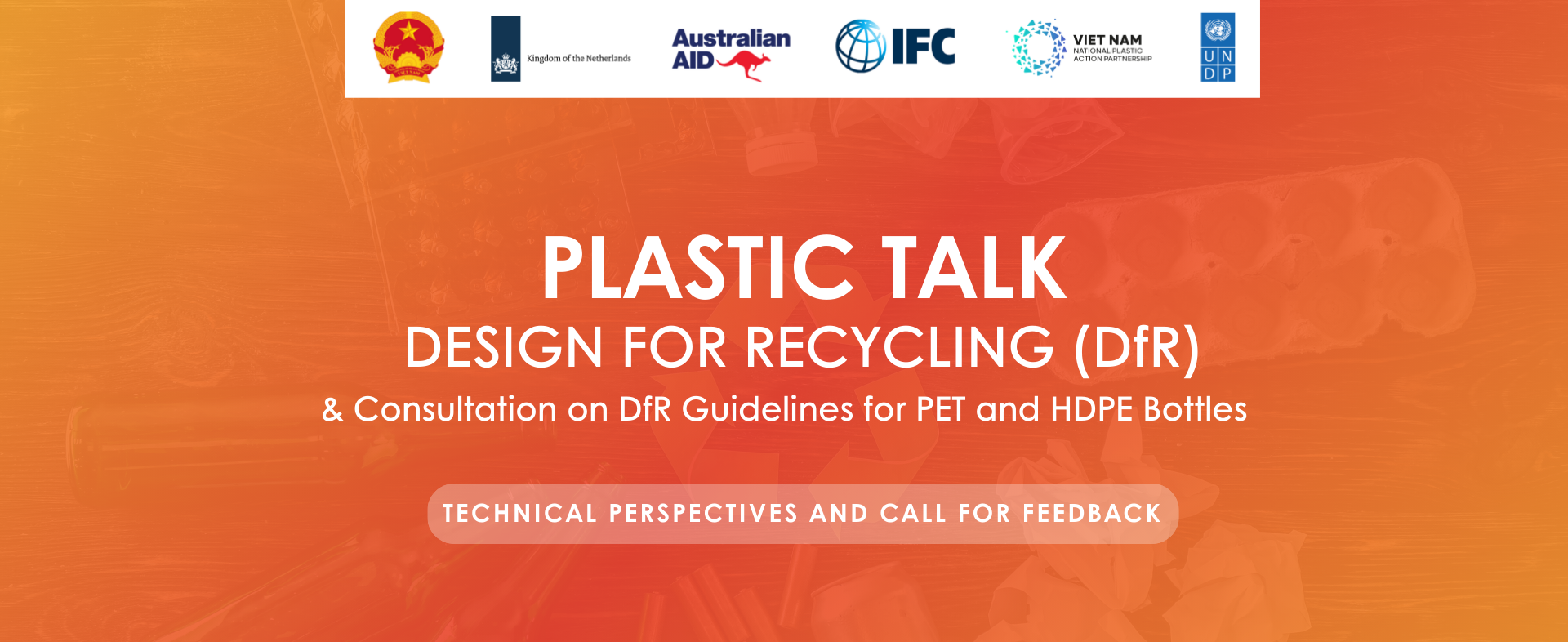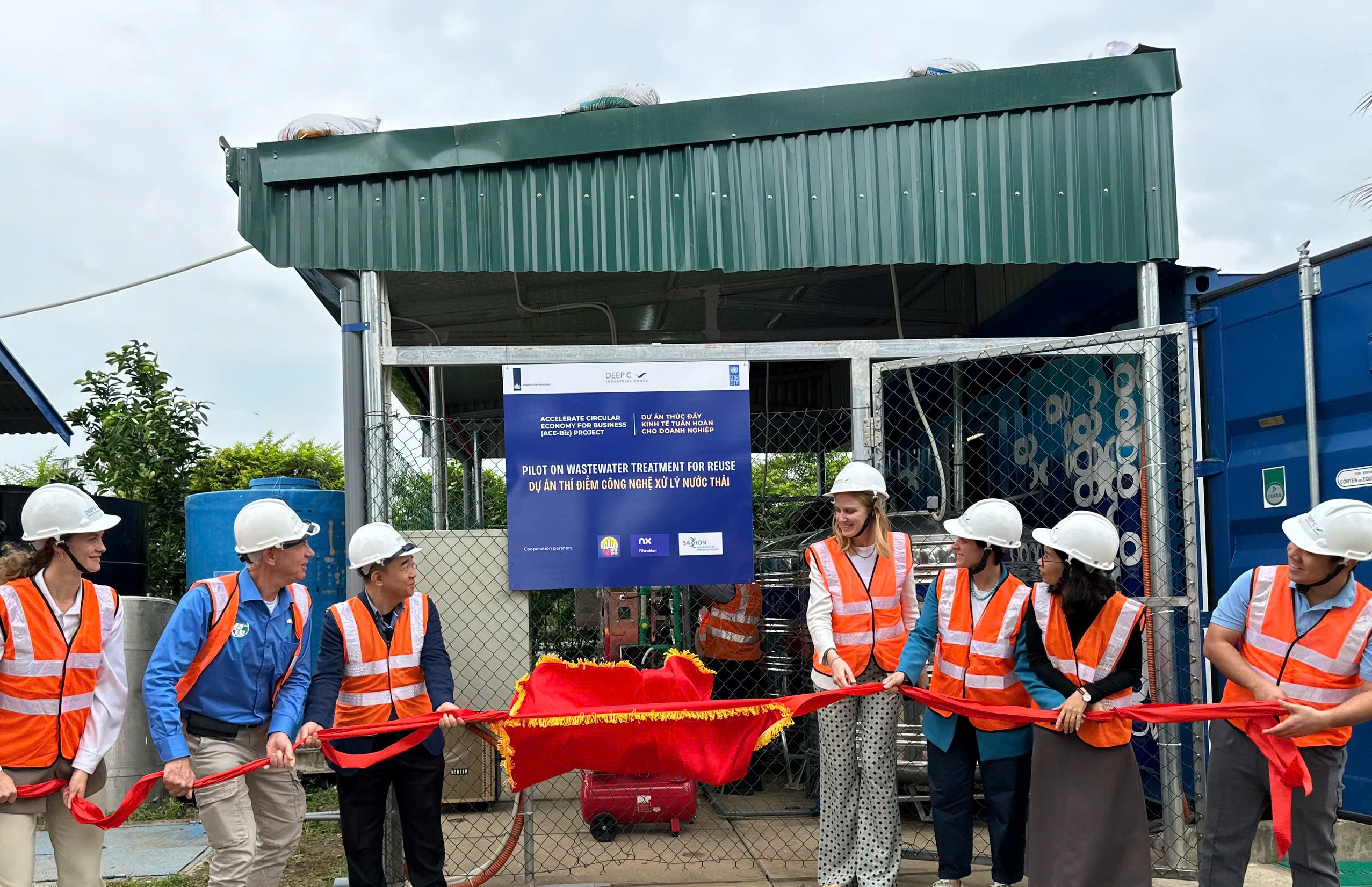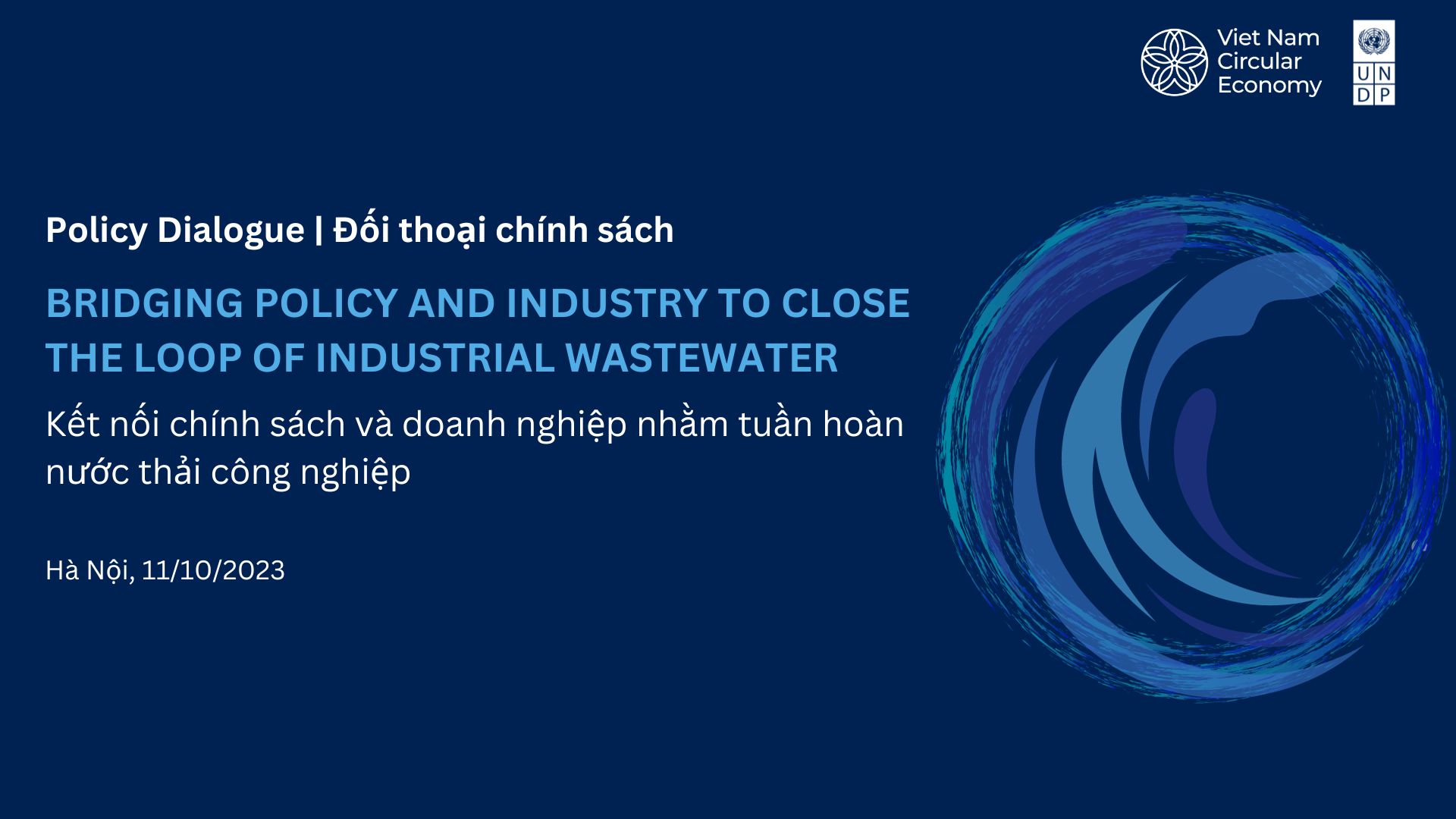
OVERVIEW
On September 11, 2023, the Vietnam Circular Economy Hub organised the “Policy Dialogue: Bridging policy and industry to close the loop of industrial wastewater”, which welcomed the participation of representatives from the Industrial Safety Techniques and Environment Agency (under the Ministry of Industry and Trade), Department of Science Technology and Environment (under the Ministry of Agriculture and Rural Development), the Institute of Strategy and Policy on Natural Resources and Environment (under the Ministry of Natural Resources and Environment), Vietnam Institute of Quality Standards, Ministry of Science and Technology (Ministry of Science and Technology); and more than 40 representatives from businesses, associations, research institutes, universities and development organisations.
The event commenced with presentations by 3 speakers:
- Prof. Nguyen Viet Anh, Director of the Institute of Environmental Science and Engineering (IESE), Vice cum Vice President, Viet Nam Water Supply and Sewerage Association (VWSA). His presentation focused on technologies, solutions for industrial wastewater treatment, as well as policies, regulations, and standards governing the maximum allowable pollution parameters in industrial wastewater when discharged into receiving sources. This served as a foundation for safeguarding and utilising water sources.
- Dr. & Lawyer Pham Hong Diep, Chairman of Shinec JSC & Investor of Nam Cau Kien Industrial Park. He shared about the current status, opportunities, and challenges of wastewater circularity for businesses.
- Prof. Harry Futselaar, Professor International Water Technology from Saxion University of Applied Science in the Netherland concluded this session with a presentation on industrial wastewater circulation model and policies supporting treated wastewater reuse in the Netherlands.
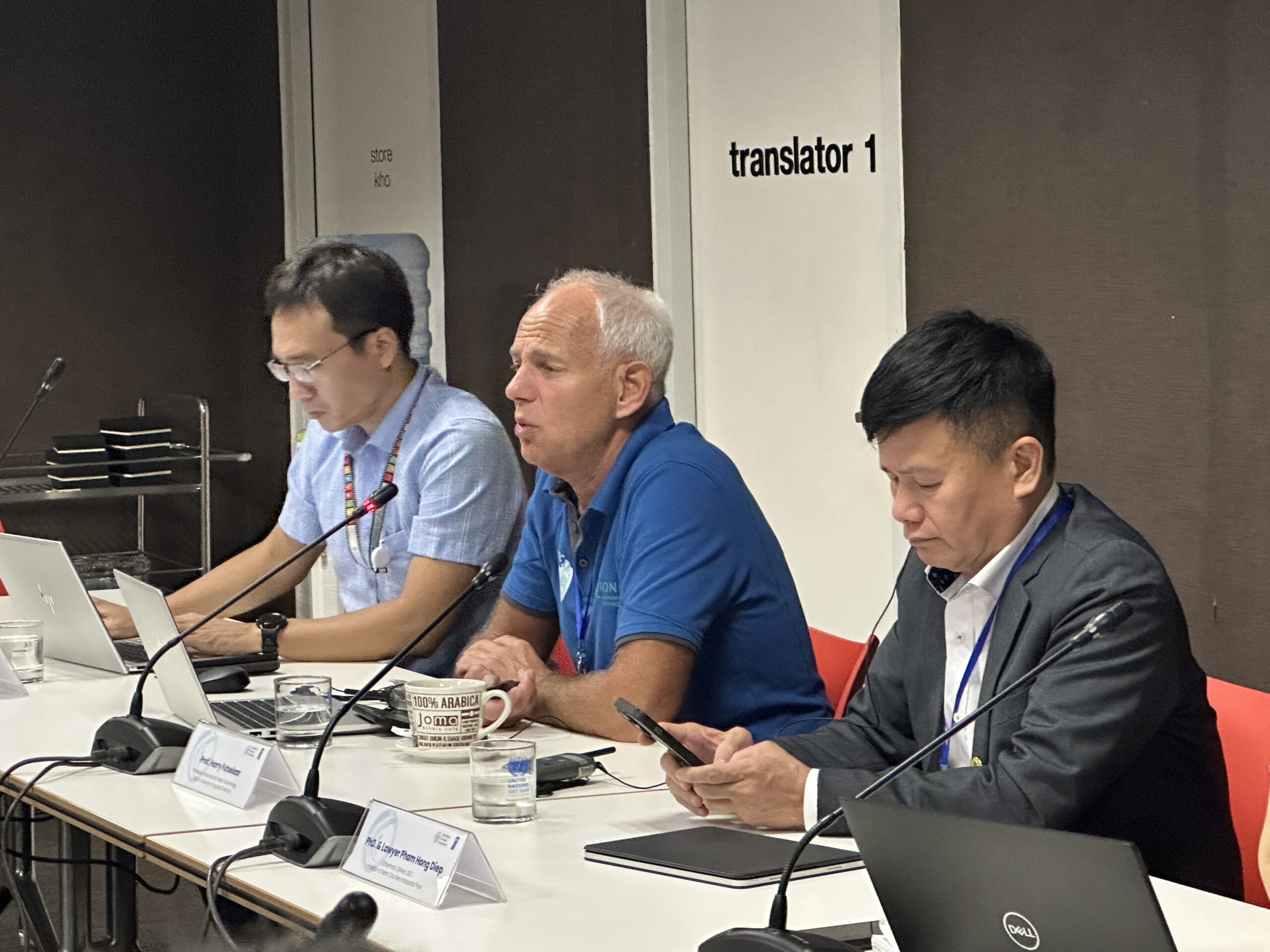
The second half of the event was a round table discussion addressing policy challenges faced by businesses and proposed solutions by relevant agencies.
DIFFICULTIES AND CHALLENGES IN INDUSTRIAL WASTEWATER REUSE
- Legal framework: The circulation and reuse of wastewater is outlined in the Law on Environmental Protection 2020, the Law on Water Resources, and specific decrees such as No. 38/2015/ND-CP, No. 54/2015/ND-CP, No. 08/2022/ND-CP, etc. The more recent QCVN 08:2023/BTNMT provides detailed specifications for parameters in surface water, classifying it into grades A, B, and C, each with defined purposes. However, despite regulations in the agricultural sector (Ministry of TCVN 12180 and QCVN 01-195:2022/BNNPTNT), the actual reuse of treated wastewater is primarily limited to internal activities by enterprises. The lack of detailed standards and regulatory guidance poses challenges to the exchange and resale of treated wastewater among enterprises, attributed to inadequate mechanisms for supervision, quality control, and risk management.
- Wastewater treatment cost: The current price of water for producers stands at 15,000 VND/m3, significantly lower than the rates in developed countries such as the Netherlands (47,000 VND/m3). Consequently, treated wastewater struggles to compete with traditional supply water due to the substantial investment and operation costs associated with treatment systems. The option to increase the price of supply water for competitiveness is deemed unfeasible, given the essential role of water in daily life and production activities. Any alteration in water prices is anticipated to have widespread implications on economic and social development.
- Technology: RO water purification technology (Reverse osmosis membrane water purification technology) is a highly effective method today. However, this method has drawbacks, including electricity consumption, failure to remove certain substances (solvents, pesticides, chlorine, VOCs), and the elimination of some naturally occurring minerals in water. Particularly, the removal of alkaline minerals by the RO membrane filter slot can result in acidic filtered water.
- Financial instruments: Financial instruments for wastewater reuse currently lack incentives, and there is a noticeable absence of financial tools to support enterprises in investing in technologies and projects related to water reuse.
POLICY CHANGES IN THE NEAR FUTURE
- Draft amendments to the Law on Water Resources
The impending draft amendments to the Law on Water Resources, scheduled for submission to the National Assembly in the upcoming November session, address the intricacies of water circulation and reuse. The draft emphasises defining water reuse and recirculating water use, encouraging projects with water reuse solutions, and mandating water reuse plans for areas prone to drought and water shortage. It also proposes corresponding forms of incentives, aiming to regulate investment projects in production, business, and services involving water exploitation, use, and discharge in areas where water sources face capacity challenges. Additionally, it contemplates regulations on incentives for projects implementing water circulation and reuse solutions, such as potential exemptions or reductions of water resources exploitation rights grants.
- National Action Plan for Circular Economy Implementation
Simultaneously, the draft National Action Plan on the Circular Economy, set to be submitted for approval in December 2023, sets specific targets for water reuse, aiming that over 70% wastewater treated and discharged into river basins will have been reused by 2030. While not directly regulating industrial wastewater, the Action Plan promotes circular economy projects and encourages coordination among agencies to establish legal regulations, standards, and technical guidelines for the circular economy. This includes the implementation of industrial symbiosis in industrial parks, clusters, and concentrated production and business zones.
RECOMMENDATIONS
- There should be coordination among ministries and sectors in the development of standards, regulations and monitoring mechanisms for wastewater reuse activities:
Effective coordination among ministries and sectors is paramount for the development of standards, regulations, and monitoring mechanisms for wastewater reuse activities. Currently, existing decrees and regulations lack specificity on wastewater circulation and reuse, making it imperative to synchronously implement the development and promulgation of technical guidelines, standards, and regulations. This coordinated effort aims to manage, supervise, control risks, and enhance the socio-economic and environmental benefits of wastewater reuse. Alongside this, there is a pressing need for incentive policies to support businesses and water users..
- It is necessary to develop a project and pilot a model on wastewater reuse at the level of enterprises and industrial parks:
There is a crucial call to action for the development of a project and the initiation of a pilot model on wastewater reuse at the enterprise and industrial park levels. Enterprises keen on exchanging and trading treated wastewater should formulate comprehensive plans for wastewater reuse. These plans must be submitted to state management agencies for thorough consideration, taking into account factors such as fixed water sources, risk management, incident response scenarios, and other safety considerations for both humans and the environment.

